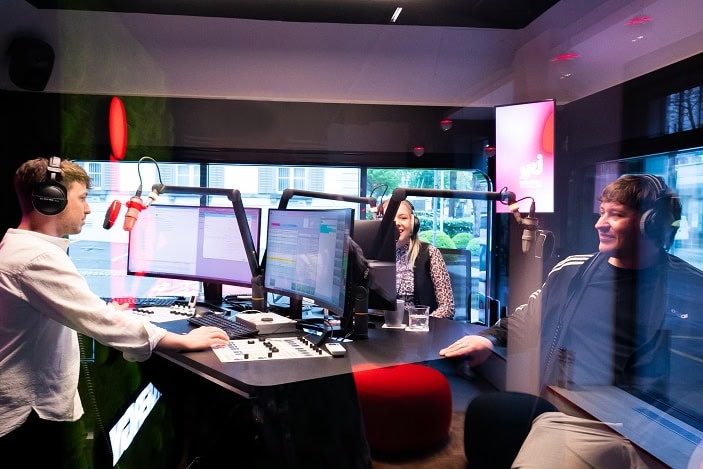No Billag initiative enters parliament
Without radio and television fees, the high-quality public service would be endangered. This is what the Federal Council writes in the dispatch on the popular initiative "Yes to the abolition of radio and television fees". The matter is now ready for parliamentary debate.

As already communicated several times, the government believes that radio and television should continue to be financed by fees. Neither the initiative nor a counter-proposal would be expedient. In the dispatch adopted on Wednesday, the Federal Council underlines its position in view of the referendum, which it says will take place in autumn 2017 at the earliest. According to the Federal Council, the current radio and television fees should remain stable until the changeover to the new levy system, probably in 2019. The Federal Council also intends to set the household levy at below CHF 400 with the system change.
Less diversity
The initiative opposes this system of reception fees in principle. In the future, the federal government would auction off radio and television licenses on a regular basis. Subsidies to radio and television stations would be abolished. In the view of the Federal Council, this would have "drastic effects" on the Swiss media landscape and would "considerably weaken" the Swiss media center. A public service in the media sector cannot be financed exclusively on a commercial basis.
Acceptance of the initiative would result in a reduction in SRG offerings, radio stations in mountain and peripheral regions and regional television. "As a result, the diversity of opinion and offerings on radio and television would very likely decrease."
Financial compensation for minorities would be eliminated
According to the Federal Council, the small language regions would be hit the hardest. It is only thanks to the SRG's internal financial equalization that radio and television programs of equal quality can be produced in all official languages today. Of the SRG's total revenue, which is mainly made up of reception fees and advertising and sponsorship income, 24.5 percent comes from French-speaking Switzerland, 4.5 percent from Italian-speaking Switzerland and the rest from German-speaking Switzerland. These funds are divided equally among the language regions, so that the French-speaking SRG stations receive 32.7 percent and the Italian-speaking 21.8 percent. From information to entertainment Today, about three-quarters (CHF 1.235 billion) of SRG's funding comes from license fees, and up to two-thirds (CHF 67.5 million) from private local radio stations and regional television stations.
Since the loss of fee income could not be compensated by advertising revenue, according to the Federal Council, all these broadcasters would have to make massive cuts in their offerings. According to the Federal Council, anyone who says yes to the initiative is accepting a new, not well thought-out media system. "Purely commercial radio and television offerings are usually entertainment-oriented, at the expense of information, education and culture." Today, 58 percent of SRG's fees flow into these three areas.
Second attempt successful
The initiative "Yes to the abolition of radio and television fees (abolition of Billag fees)" was submitted on December 11, 2015 with 112,191 valid signatures. The initiative is backed by representatives of the Young SVP and the Young Freisinn. It is already the second popular initiative calling for the abolition of reception fees. The initiative "Radio and television - without Billag", however, did not come to fruition. Radio and television fees were also discussed in the June 2015 referendum. At the time, voters approved the revised Radio and Television Act by an extremely narrow margin. In doing so, it created the basis for the change from the current reception fee to a device-independent fee. This is intended to take account of the fact that most households have receivers, as radio and TV programs can now also be received on cell phones and computers. Registration with Billag will no longer be necessary, and controls will no longer be required. (SDA)
Photo: Parliamentary Services 3003 Bern








